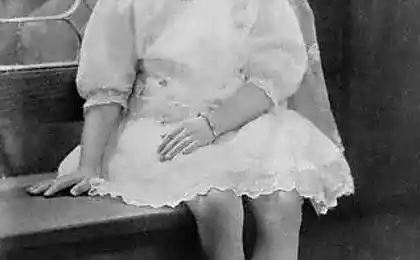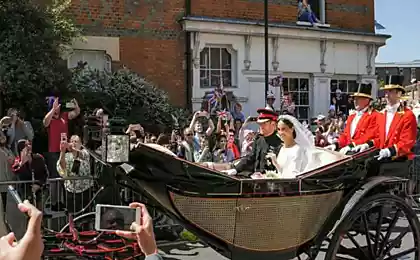2790
The nature of love. The best way to understand the heart - break it. Harry Harlow
American psychologist Harry Harlow (Harry Harlow) earned their experiences sinister reputation even among colleagues. The paradox is that he thereby got for science data to prove the necessity of warmer relations of people to each other. It happened in the 50s. Harlow originally engaged in the development of intelligence test for monkeys. He showed that they are able to solve problems much more complex than believed authors of earlier studies
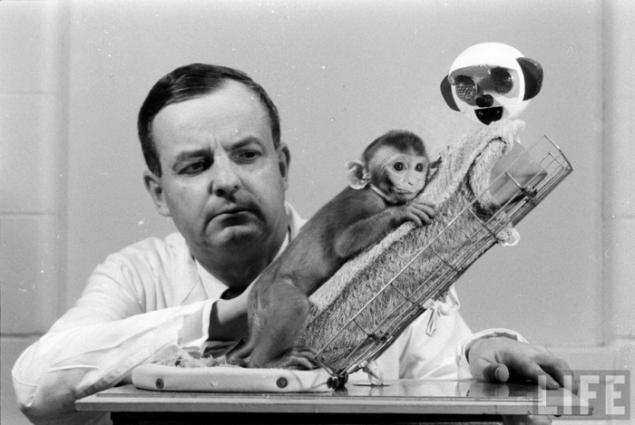
By studying rhesus monkeys, Harlow isolated young mothers and their peers. It is this fact played a decisive role in the fact that he came to the opening, which brought him fame.
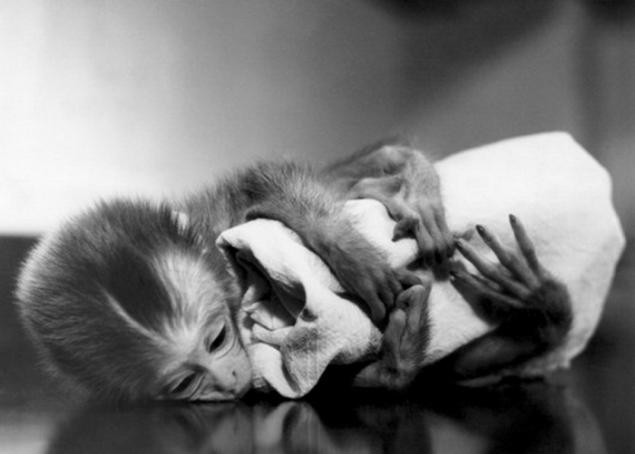
He noticed that the monkeys when they were separated from the mother, makes it extremely tied to a terry towel that covered the floor of the cell. They clench their fists in their hugging them and get hysterical when took away the towel. What happened? Attachment at the time was understood only in terms of food reinforcement. Baby loves his mother because it satisfies his hunger. Harlow fed babies from the hands of small bottles.
When he cleaned the bottle, monkeys simply turned away. But when he tried to take away their towel is something completely different: macaques started screaming hysterically, threw themselves to the floor and grabs a stranglehold in the towel. Harlow looked at the screaming monkeys and thought about how there is love. To him came a sudden thought. According to his biographer Blum, the best way to understand the heart - break it. Soon Harlow began his famous experiments.
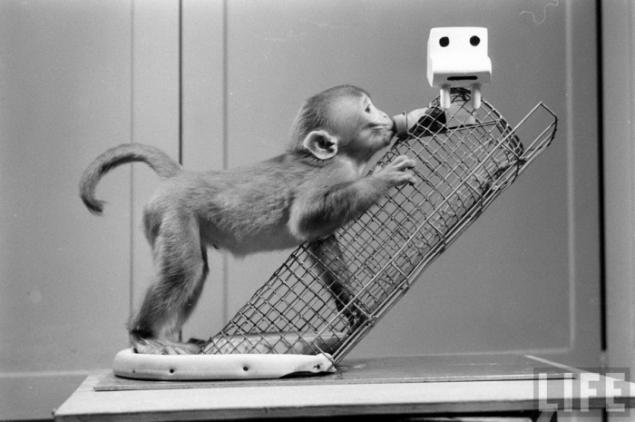
With tin snips, and he built a soldering iron wire mesh "surrogate mother." To it was attached a nipple, which implies ape milk.
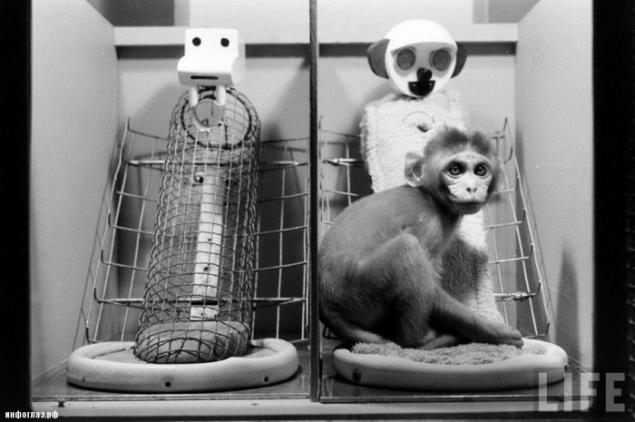
In addition, he made a soft surrogate mother, wrapping her body terry cloth. The second mother was not the nipple. Newborn calves were put in cells with two surrogate mothers. Adult monkey who robbed the children screaming and beating on the walls of the cells; kids groaned, hitting a separate room. This went on for hour after hour, the lab was filled with cries of despair and stench: diarrhea, wrote Harlow, indicates a high degree of emotional stress.
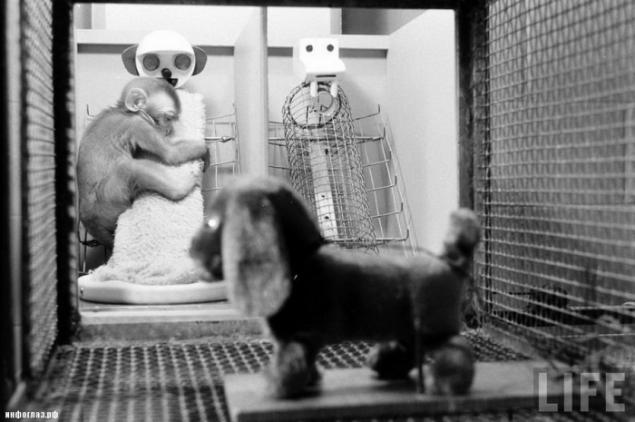
But then things began to happen amazing. Several days later, Young transferred his affection to these mothers who were now available on the cloth surrogate; they clung to them, crawling on them, caress them "face" of his little legs and spent many hours sitting on their back and stomach. Cloth mother could not feed them milk, and when Young were hungry, they climb to the wire mother, but then returned to the cloth.
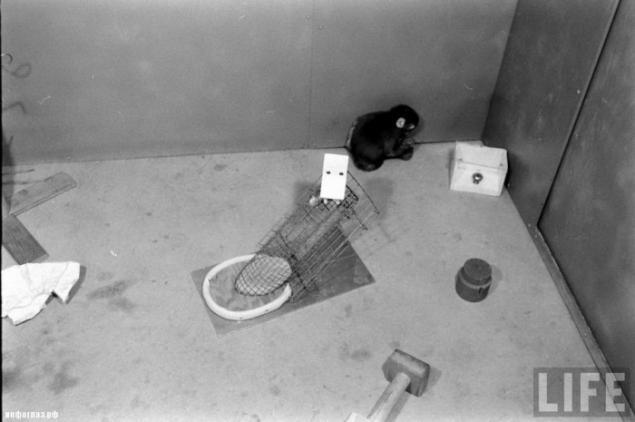
After some time, Harlow put little monkeys in a strange room with a surrogate mother. If they had been breast-feeding a young trembled, cried and clenched into a ball on the floor.
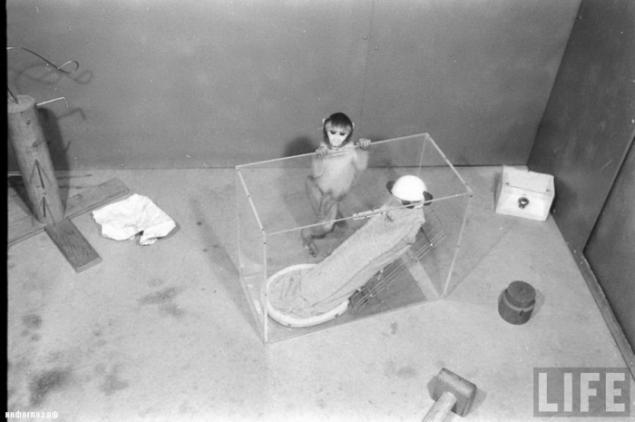
If the room is provided cloth surrogate mother, their behavior was different: the monkeys felt secure, with interest studied the room and items placed in it.
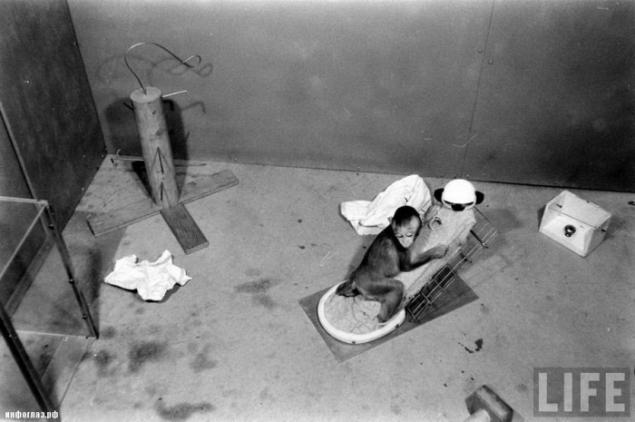
Harlow made a speech, which he called "The Nature of Love" and which has become a classic: "We are not surprised when they found out that the comfort that brings contact, is the basis of variables such as attachment and love, but we did not expect that it completely obstructs such factors as nutrition; Indeed, the difference was so great, that made suggests: the main function of feeding - providing frequent and close body contact with the baby's mother ... Love to the present and to the surrogate mother look very similar. According to our observation, affection baby monkey to the real mother is very strong, but she is not inferior to the love that in the conditions of the experiment shows a young surrogate mother fabric ».
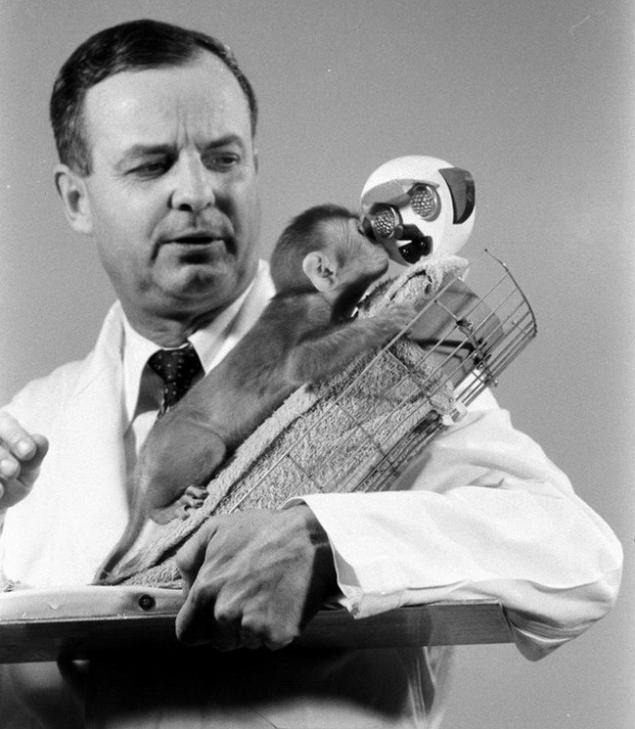
In the years 1930-1950 was dominated by the theory of education, according to which should not pamper the child tactile encouragement, embracing him and taking his hands. Harlow showed that touch of mother to child are vital. He presented data that clearly show: cloth surrogate mother is more important for children than feeding. His success was a triumph, and revolutionized. In 1958, Harlow was elected president of the American Psychological Association. On it made a documentary film. His work has influenced the industry, manufacturer of children's products: special widely backpacks in which parents could carry children. Shelters and maternity hospitals changed their policy: little baby bottles with milk, it is necessary to take in his arms to swing, to look at him and smile.
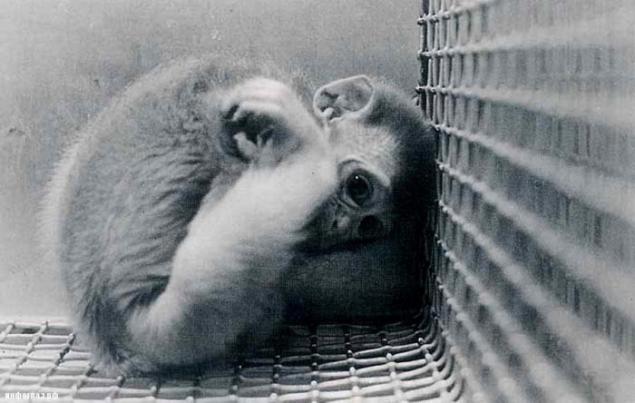
Something went wrong. Cloth surrogate mother provides tactile contact is not worse than the present, but for the next year Harlow noticed that the monkeys were not grown quite normal. When he let them out of the cells, so that they can play with each other and form a pair, they furiously to avoid contact. The females attacked males. Some have been something similar to autism: they swayed, biting themselves to blood and bite off their own fingers.
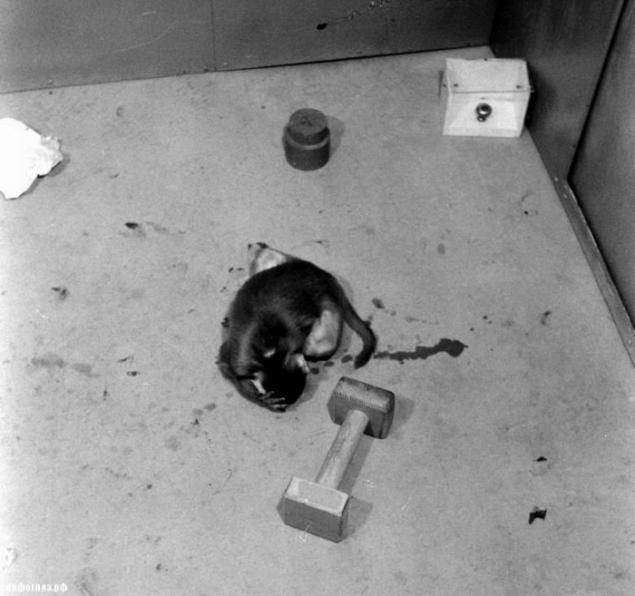
Harlow was disappointed. Just a year ago, he solemnly declared that highlighted a major component of education, and now it was clear that he made a mistake. He began to drink. In subsequent articles, Harlow courageously acknowledged that grown young surrogate mothers suffer emotional disturbances, and pointed out that in addition to the need to touch at least half an hour a day playing cubs each other. To prove this he took observations of dozens of monkeys.
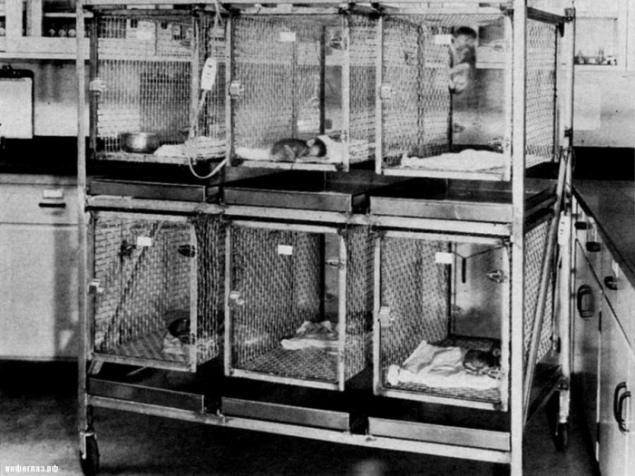
First macaques raised in isolation, have not learned to play and mate. However, females reach maturity, they began to mature egg. Harlow wanted to get their offspring because he has a new idea. He was interested in the question, what will be the mothers these monkeys. All attempts to plant them experienced males have not been successful - the female seizes them in the face. Then he came up with a device that is called a "frame for rape": it recorded the female could not resist the fact that it got into a male. It has brought success. Twenty females became pregnant and gave birth to offspring. Some of them have killed their young, others were indifferent to them, only a few behaved appropriately.
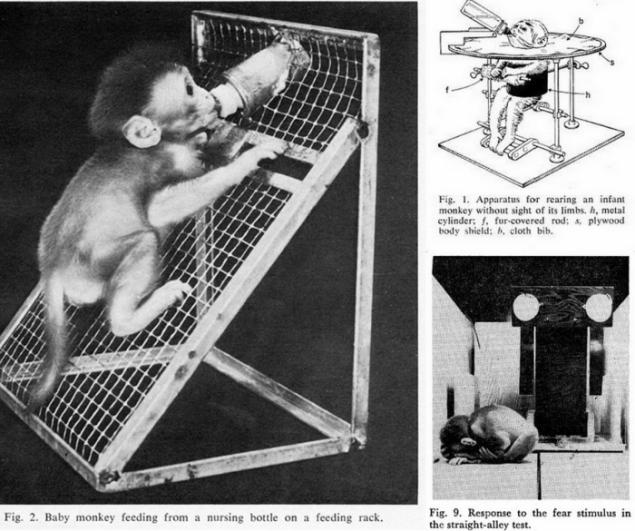
In 1967, Harlow was awarded the National Medal of Science. He was at the peak of scientific career, from just down the road. After four years on his wife died of cancer. He felt exhausted and had to go to the clinic course of electroconvulsive therapy. For a while he became Harlow laboratory animals treated with the experimental procedure. After treatment, he returned to the lab, and the staff said that he never was the same. He spoke slowly and stopped joking. He no longer wanted to study deprivation of maternal education. He was interested in what causes depression and that it can heal. Harlow was looking for a cure including himself.
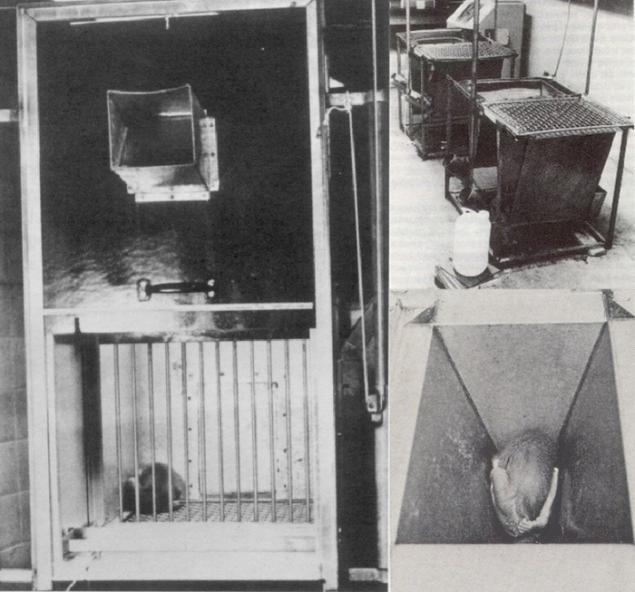
He developed an isolated chamber in which the monkey was sitting hunched, head down, and seeing nothing. The experiment lasted six weeks. The animals were fed through the hole at the bottom of the chamber, covered with a special screen. This device Harlow called "a well of despair." He is quite able to create a model of mental illness. Animals released from the "pit of despair", had shattered psyche suffering from severe psychosis. What would Harlow nor made, return them to their normal state failed.
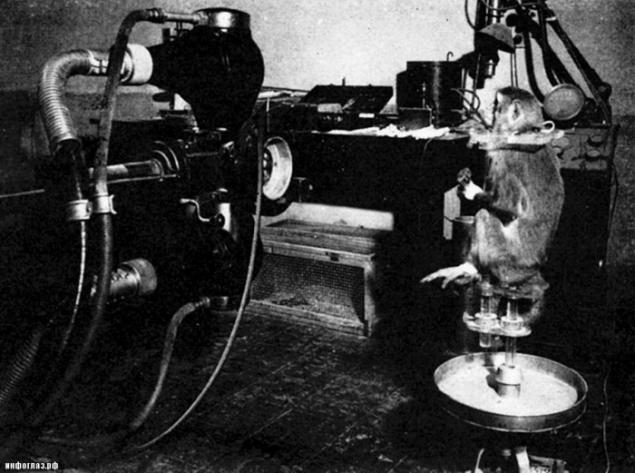
Another experimental devices Harlow consisting of stool rotating at a constant rate of one revolution per minute, and the X-ray apparatus.
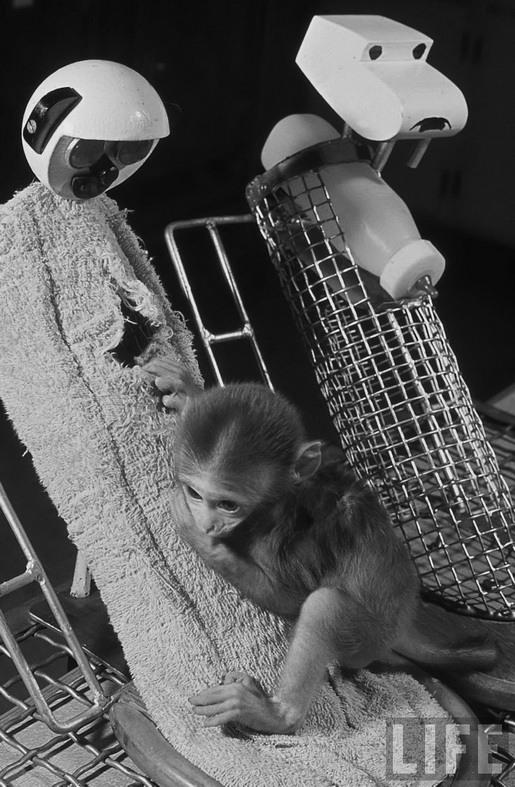
Harlow died in 1981 from Parkinson's disease. "The only thing I appreciate in monkeys, - he said - is derived from data that I can publish. I did not like them. Animals generally do not like me. I feel an aversion to cats. I hate dogs. How can you love monkeys? »
©

By studying rhesus monkeys, Harlow isolated young mothers and their peers. It is this fact played a decisive role in the fact that he came to the opening, which brought him fame.

He noticed that the monkeys when they were separated from the mother, makes it extremely tied to a terry towel that covered the floor of the cell. They clench their fists in their hugging them and get hysterical when took away the towel. What happened? Attachment at the time was understood only in terms of food reinforcement. Baby loves his mother because it satisfies his hunger. Harlow fed babies from the hands of small bottles.
When he cleaned the bottle, monkeys simply turned away. But when he tried to take away their towel is something completely different: macaques started screaming hysterically, threw themselves to the floor and grabs a stranglehold in the towel. Harlow looked at the screaming monkeys and thought about how there is love. To him came a sudden thought. According to his biographer Blum, the best way to understand the heart - break it. Soon Harlow began his famous experiments.

With tin snips, and he built a soldering iron wire mesh "surrogate mother." To it was attached a nipple, which implies ape milk.

In addition, he made a soft surrogate mother, wrapping her body terry cloth. The second mother was not the nipple. Newborn calves were put in cells with two surrogate mothers. Adult monkey who robbed the children screaming and beating on the walls of the cells; kids groaned, hitting a separate room. This went on for hour after hour, the lab was filled with cries of despair and stench: diarrhea, wrote Harlow, indicates a high degree of emotional stress.

But then things began to happen amazing. Several days later, Young transferred his affection to these mothers who were now available on the cloth surrogate; they clung to them, crawling on them, caress them "face" of his little legs and spent many hours sitting on their back and stomach. Cloth mother could not feed them milk, and when Young were hungry, they climb to the wire mother, but then returned to the cloth.

After some time, Harlow put little monkeys in a strange room with a surrogate mother. If they had been breast-feeding a young trembled, cried and clenched into a ball on the floor.

If the room is provided cloth surrogate mother, their behavior was different: the monkeys felt secure, with interest studied the room and items placed in it.

Harlow made a speech, which he called "The Nature of Love" and which has become a classic: "We are not surprised when they found out that the comfort that brings contact, is the basis of variables such as attachment and love, but we did not expect that it completely obstructs such factors as nutrition; Indeed, the difference was so great, that made suggests: the main function of feeding - providing frequent and close body contact with the baby's mother ... Love to the present and to the surrogate mother look very similar. According to our observation, affection baby monkey to the real mother is very strong, but she is not inferior to the love that in the conditions of the experiment shows a young surrogate mother fabric ».

In the years 1930-1950 was dominated by the theory of education, according to which should not pamper the child tactile encouragement, embracing him and taking his hands. Harlow showed that touch of mother to child are vital. He presented data that clearly show: cloth surrogate mother is more important for children than feeding. His success was a triumph, and revolutionized. In 1958, Harlow was elected president of the American Psychological Association. On it made a documentary film. His work has influenced the industry, manufacturer of children's products: special widely backpacks in which parents could carry children. Shelters and maternity hospitals changed their policy: little baby bottles with milk, it is necessary to take in his arms to swing, to look at him and smile.

Something went wrong. Cloth surrogate mother provides tactile contact is not worse than the present, but for the next year Harlow noticed that the monkeys were not grown quite normal. When he let them out of the cells, so that they can play with each other and form a pair, they furiously to avoid contact. The females attacked males. Some have been something similar to autism: they swayed, biting themselves to blood and bite off their own fingers.

Harlow was disappointed. Just a year ago, he solemnly declared that highlighted a major component of education, and now it was clear that he made a mistake. He began to drink. In subsequent articles, Harlow courageously acknowledged that grown young surrogate mothers suffer emotional disturbances, and pointed out that in addition to the need to touch at least half an hour a day playing cubs each other. To prove this he took observations of dozens of monkeys.

First macaques raised in isolation, have not learned to play and mate. However, females reach maturity, they began to mature egg. Harlow wanted to get their offspring because he has a new idea. He was interested in the question, what will be the mothers these monkeys. All attempts to plant them experienced males have not been successful - the female seizes them in the face. Then he came up with a device that is called a "frame for rape": it recorded the female could not resist the fact that it got into a male. It has brought success. Twenty females became pregnant and gave birth to offspring. Some of them have killed their young, others were indifferent to them, only a few behaved appropriately.

In 1967, Harlow was awarded the National Medal of Science. He was at the peak of scientific career, from just down the road. After four years on his wife died of cancer. He felt exhausted and had to go to the clinic course of electroconvulsive therapy. For a while he became Harlow laboratory animals treated with the experimental procedure. After treatment, he returned to the lab, and the staff said that he never was the same. He spoke slowly and stopped joking. He no longer wanted to study deprivation of maternal education. He was interested in what causes depression and that it can heal. Harlow was looking for a cure including himself.

He developed an isolated chamber in which the monkey was sitting hunched, head down, and seeing nothing. The experiment lasted six weeks. The animals were fed through the hole at the bottom of the chamber, covered with a special screen. This device Harlow called "a well of despair." He is quite able to create a model of mental illness. Animals released from the "pit of despair", had shattered psyche suffering from severe psychosis. What would Harlow nor made, return them to their normal state failed.

Another experimental devices Harlow consisting of stool rotating at a constant rate of one revolution per minute, and the X-ray apparatus.

Harlow died in 1981 from Parkinson's disease. "The only thing I appreciate in monkeys, - he said - is derived from data that I can publish. I did not like them. Animals generally do not like me. I feel an aversion to cats. I hate dogs. How can you love monkeys? »
©


